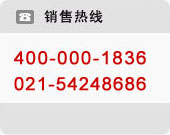
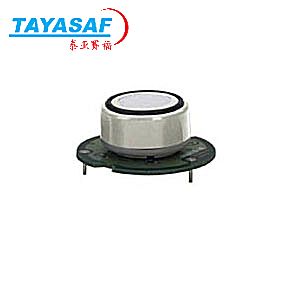
SensAlert -- 011243-D-2X氨气传感器300ppm
| 订货号: | MM-44017-00 |
| 产地: | 美国 |
| 品牌: | |
| 开发编号: | Y |
| 市场价: | ¥ |
| *此产品根据配置不同价格不同 |
| *此价格为参考价格,具体价格以订单合同为准 |
- 我在现场:
- 产品视频:
- 1
- 2
- 产品描述
- 技术参数
- 技术文档
- 相关产品
- 明细价格
- 购买流程
产品描述:
Minimum Indicated Concentration .............. 10 ppm
Repeatability .............................................. ± 2% of reading
Accuracy * ................................................. ± 2% of full scale
Span Drift .................................................. < 10% change per year (typical)
Response Time (Rise) ................................. T50: < 20 seconds, successive exposures
T90: < 60 seconds, successive exposures
Recovery Time (Fall) ................................... T10: < 120 seconds
Temperature Range ................................... -20° to 50°C (-4° to 122°F)
Humidity Range (continuous) ...................... 5–95 %RH, non-condensing
Humidity Range (intermittent†) ................... 0–99 %RH, non-condensing
Pressure Range .......................................... Ambient atmospheric, ± 1 psi
Recommended Calibration Flow rate .......... 1.0 LPM
Oxygen Requirement .................................. 1% by volume, minimum
† Gas exposure should not exceed eight (8) hours during any 24 hour period.
* When unit is calibrated and serviced at recommended intervals.
AMMONIA
(Low Interferent)
(0-300 ppm)
Part No. 011243-D-2X
AMMONIA
Interferent TLV LEL Exposure Response
Alcohols 1000 ppm None
Carbon Monoxide 25 ppm 12.5 %v 1000 ppm None
Chlorine 0.5 ppm *** 1 ppm None
Hydrocarbons %vol range None
Hydrogen asphyxiant 4.0 %v 1 %vol None
Hydrogen Chloride C 5 ppm *** 5 ppm None
Hydrogen Cyanide C 4.7 ppm 5.6 %v 10 ppm None
Hydrogen Sulfide 10 ppm 4.0 %v 10 ppm + 1 ppm *
Interferent Notes
(*) Long term exposure may damage sensor.
(***) means the substance is not combustible in air under normal conditions. “C” Denotes a ceiling (in TLV column).
If an interferent is present and there is no target gas, certain transmitters will not display the interferent response until the EFFECT of the interferent reaches
± 4 ppm. This is due to display “blanking” that occurs between -3 ppm and + 3 ppm on transmitters that display gas concentrations as whole numbers (no decimals
技术参数:

泰亚赛福作为众多知名品牌的合作伙伴,以最优的价格+完善的售后服务体系向您提供产品。“服务第一、质量第一、价格最低”!

泰亚赛福作为众多知名品牌的合作伙伴,以最优的价格+完善的售后服务体系向您提供产品。“服务第一、质量第一、价格最低”!
技术文档:

泰亚赛福作为众多知名品牌的合作伙伴,以最优的价格+完善的售后服务体系向您提供产品。“服务第一、质量第一、价格最低”!
- 在线浏览:
- 文档下载:

泰亚赛福作为众多知名品牌的合作伙伴,以最优的价格+完善的售后服务体系向您提供产品。“服务第一、质量第一、价格最低”!
相关产品:

泰亚赛福作为众多知名品牌的合作伙伴,以最优的价格+完善的售后服务体系向您提供产品。“服务第一、质量第一、价格最低”!
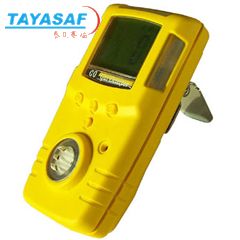 GA10氨气检测仪订货号:MM-08602-00
GA10氨气检测仪订货号:MM-08602-00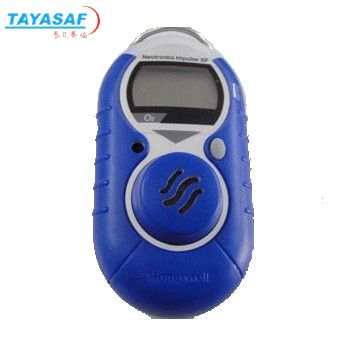 Impulse XP便携式氨气检测仪订货号:MM-00346-00
Impulse XP便携式氨气检测仪订货号:MM-00346-00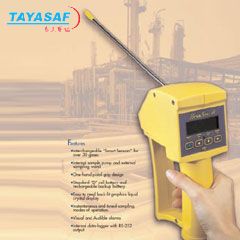 C16手持式氨气(NH3、0-50/500ppm)检测仪订货号:MM-00548-00
C16手持式氨气(NH3、0-50/500ppm)检测仪订货号:MM-00548-00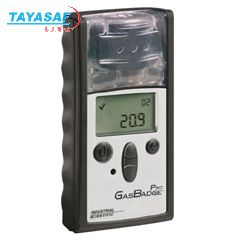 美国英思科GasbadgePro便携式氨气检测仪订货号:MM-00663-00
美国英思科GasbadgePro便携式氨气检测仪订货号:MM-00663-00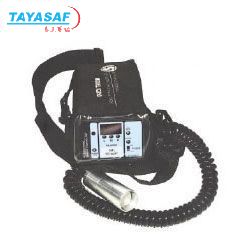 IQ-250便携式氨气检测仪订货号:MM-00699-00
IQ-250便携式氨气检测仪订货号:MM-00699-00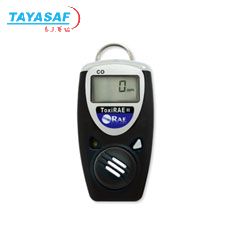 PGM-1191氨气报警仪订货号:MM-00911-00
PGM-1191氨气报警仪订货号:MM-00911-00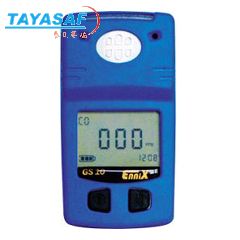 GS10氨气检测仪,便携式氨气检测仪,便携式检测仪订货号:MM-02216-00
GS10氨气检测仪,便携式氨气检测仪,便携式检测仪订货号:MM-02216-00 GRI-8309氨气检测仪订货号:MM-04033-00
GRI-8309氨气检测仪订货号:MM-04033-00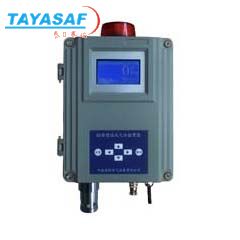 KQ-NH3单点壁挂式气体检测报警仪订货号:MM-11789-00
KQ-NH3单点壁挂式气体检测报警仪订货号:MM-11789-00 YT-1200H便携式NH3浓度检测仪订货号:MM-15256-00
YT-1200H便携式NH3浓度检测仪订货号:MM-15256-00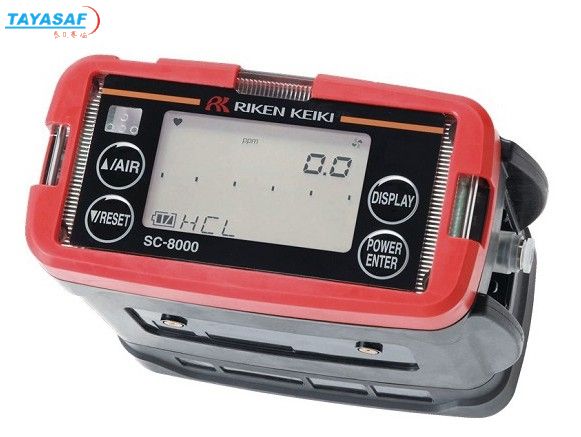 SC-8000氨气检测仪订货号:MM-85466-00
SC-8000氨气检测仪订货号:MM-85466-00

泰亚赛福作为众多知名品牌的合作伙伴,以最优的价格+完善的售后服务体系向您提供产品。“服务第一、质量第一、价格最低”!
明细价格:

泰亚赛福作为众多知名品牌的合作伙伴,以最优的价格+完善的售后服务体系向您提供产品。“服务第一、质量第一、价格最低”!
| 定货号 | 产品名称 | 规格配置 / 简介 | 市场价/(会员价) |
|---|---|---|---|
| MM-44017-00 | SensAlert -- 011243-D-2X氨气传感器300ppm | /() | |
| MM-44017-01 | NH3传感器3E100SE | 标准配置或电话咨询400-000-1836 | /() |

泰亚赛福作为众多知名品牌的合作伙伴,以最优的价格+完善的售后服务体系向您提供产品。“服务第一、质量第一、价格最低”!
购买流程:

泰亚赛福作为众多知名品牌的合作伙伴,以最优的价格+完善的售后服务体系向您提供产品。“服务第一、质量第一、价格最低”!
①购买产品:点击“生成订单”→填写产品数量、联系方式并提交→会员顾问订单处理→合同签订。
②咨询产品:请联系会员顾问或致电会员客服电话。
③如果您还不是我们的会员,请先注册。
④最小起订数量:1
注意:本产品唯一个人现金委托收款人,如汇入其它个人账户本公司不承担任何责任
维护担当:
上线时间:
投诉电话:13801126385 13911302309
②咨询产品:请联系会员顾问或致电会员客服电话。
③如果您还不是我们的会员,请先注册。
④最小起订数量:1
注意:本产品唯一个人现金委托收款人,如汇入其它个人账户本公司不承担任何责任
维护担当:
上线时间:
投诉电话:13801126385 13911302309
联系方式
电话北京:400-000-1836 分机 或拨0转总机
上海:021-54248686 分机840 / 211 或拨0转总机
上海:021-54248686 分机840 / 211 或拨0转总机
传真北京:010-84852750/84854139
上海:021-64418200
上海:021-64418200

泰亚赛福作为众多知名品牌的合作伙伴,以最优的价格+完善的售后服务体系向您提供产品。“服务第一、质量第一、价格最低”!
品牌简介
美国Sensidyne公司是一个世界级的气体检测仪器制造商,空气监测系统方面的领导者。世界各地的客户和产业依靠Sensidyne技术进行气体监测。Sensidyne专注于寻找客户应用解决方…美国Sensidyne公司是一个世界级的气体检测仪器制造商,空气监测系统方面的领导者。世界各地的客户和产业依靠Sensidyne技术进行气体监测。Sensidyne专注于寻找客户应用解决方案,提供高素质的技术人员进行现场维修和校准服务。
您最近浏览的商品












 美国sensidyne
美国sensidyne